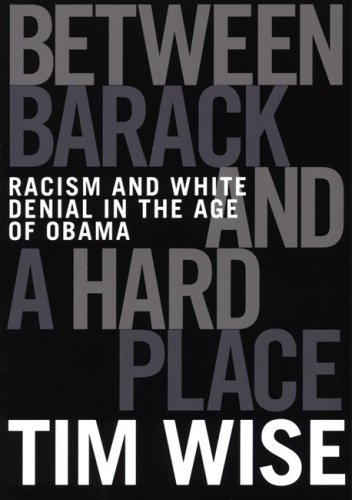A noose found on campus. A widely publicized "Compton Cookout" themed party (sponsored by white students), protests, and walk-outs. All at UCSD.
http://www.huffingtonpost.com/2010/02/26/uc-san-diego-racial-tensi_n_478612.html
Here's a letter I received from the Chancellor of UC Riverside (I'm an alum, so I get updates):
TO: Faculty, Staff, Students and Alumni
University of California, Riverside
I add my voice of outrage over the recent series of racist events that have occurred on or near the San Diego campus of the University of California.
We are all diminished by such despicable and unacceptable behaviors by a few individuals... such racist bigotry and ignoorance have no place in a civilized society, particularly a campus of the University of California because of our high expectations, expressed in the campus’ Principles of Community (http://chancellor.ucr.edu/documents/community.pdf) and statement on respect (http://chancellor.ucr.edu/documents/Respect.pdf).
For our faculty, staff, students and alumni who are African American, these events can be particularly and personally traumatizing. To all, I offer my continuing support, and my unyielding commitment to be proactive in identifying, confronting, and eradicating racism.
Below are links to two additional statements, one from UC President Mark Yudof and Russell Gould, Chair of the UC Board of Regents, and a second from President Yudof, all 10 chancellors, and the chair and vice chair of the UC Academic Senate.
Timothy P. White
Chancellor
http://chancellor.ucr.edu/Yudof%20and%20Gould%20Statement.pdf
http://chancellor.ucr.edu/documents/Statement%20from%20Chancellors.pdf
---
All of this on the heals of media reports showing that colleges and universities are not doing a good job of retaining minorities and graduating them. This was last week's letter from the Chancellor:
Dear Friends,
There have been several stories in the national and regional media this week regarding gaps in college graduation rates along racial and ethnic lines.
At the University of California, Riverside, graduation rate gaps are negligible.
The March 1 print edition of Newsweek contained an article titled, “Minority Report: American universities are accepting more minorities than ever. Graduating them is another matter†(http://www.newsweek.com/id/233843).
While the authors highlight a number of public universities with pronounced racial and ethnic gaps in graduation rates, they - as well as students, parents and lawmaakers - should know that such results are hardly inevitable.
Among UCR entering freshmen classes over the last half-dozen years, African Americans, Chicanos/Latinos, Asian Americans/Pacific Islanders, and whites each graduated at rates of 66-70%. In fact, data from the last two years of graduating classes show our African American students outperformed whites, 71% to 66%.
This success is not because we admit only elite students. Rather, we add enormous value through freshman learning communities and other academic opportunities and support efforts during a student’s matriculation. Further, our students generally have a strong work ethic about their studies and have had instilled in them by prior experience - coupled with theiir own intrinsic drive and ability - a deep responsibility to taake full advantage of the opportunities offered by UCR.
UC Riverside faculty and staff maintain an unyielding commitment to diversity as a vital component of academic excellence in today’s world. Our diversity of people, programs, and ideas has demonstrably enhanced our teaching, learning, research, and creative activity. This is reflected in a quote this week from our fourth-year student La Tonya Hodges, who is African American, “When you see there are black people around you being successful and graduating, that pumps you up to want to achieve and do well.â€
Upon graduation, students from the nine UC campuses with undergraduate students are queried through the University of California Undergraduate Experience Survey. In response to the statement that, “Diversity is important on this campus,†91% of Riverside graduates agree (the range across UC is 74% - 91%). When asked “Are students of my race/ethnicity respected on this campus?â€, 87% of UCR students agree; for African American students it’s 77%; for Chicano/Latino students it’s 90%; and Asian American/Pacific Islander 88%. These responses are consistently among the top across the UC.
The word about UCR’s success in recruiting, retaining and graduating students of color has been gaining traction in the media, including just this week a mention in New York Times and California Watch blogs, and our regional paper The Press-Enterprise (links follow my letter for those interested).
While some universities and colleges seek recognition for the students they admit, we are most interested in being known for the students we graduate...and it is a gratifying point of pridee for our faculty, staff, students, and alums to see the national recognition in this regard.
Best regards,
Tim
Tim White, Chancellor
-------
17 Students were arrested at UC Irvine in part for protesting racists acts ongoing at UCSD
"Seventeen UC Irvine activists were arrested after carrying out an impassioned sit-in outside the school chancellor's office this morning."
 There are many opportunities in this article to ask the question 'why?'. These are questions I have been asking myself for quite some time, and luckily I have chosen the right field of study to get such questions at least partially answered.
There are many opportunities in this article to ask the question 'why?'. These are questions I have been asking myself for quite some time, and luckily I have chosen the right field of study to get such questions at least partially answered. 
Recent Comments